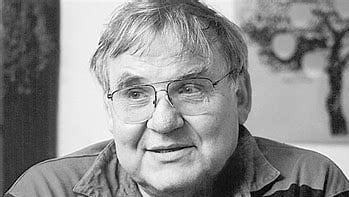It is with great sadness that we share the news of the passing of Andrievs (Andrew) Ezergailis, retired Professor of History at the Ithaca College (Ithaca, New York, United States). Prof. Ezergailis was a renowned historian focusing on the 20th-century history of Latvia, particularly on the 1917 Revolution and the Holocaust in Latvia. Prof. Ezergailis was a long-time member of the Association for the Advancement of Baltic Studies, contributing greatly to the Baltic scholarship by bringing Holocaust studies into the AABS’ mainstream.
Below, we publish his obituary, written by Aldis Purs, Affiliate Assistant Professor at University of Washington.

Andrievs (Andrew) Ezergailis, 1930–2022.
Andrievs Ezergailis, one of the most important historians of Latvia and a kind, caring friend, passed away.
Ezergailis was a sharp, endlessly principled, advocate of evidence as the foundation of the history of Latvia. He fought an often lonely battle to establish a real historical understanding of the Holocaust in Latvia. He tracked every statement, every rumor, every innuendo, every implication to its source, and then was unwavering in building his truth from these sources. He had an encyclopedic knowledge of the intricacies of the Nazi regime’s bureaucracy and many branches of armed force in the occupied East. For decades, he endured the slings and arrows of emigre Latvians who preferred to stick their heads in the sand like ostriches and minimize or deny Latvian involvement in the Holocaust. Eventually he was feted and even awarded one of Latvia’s highest honors, the Triju Zvaigžņu ordenis (Cross of the Order of the Three Stars, one of the highest honors of Latvia – edit.) but I doubt many have read his work or fully come to terms with the history it documents.
He equally defended individual Latvians and organizations (many of which he found distasteful) from manufactured Soviet propaganda that hoped to use the Holocaust as a weapon in delegitimizing the case for an independent Latvia (in the past, present or future). He served as an expert in prosecutions AND defenses of accused war criminals, always driven by what the evidence could prove. Ezergailis was relentless in his pursuit of the Holocaust and infuriated admirers as much as detractors by never taking a step away from his constant and intense scrutiny of the document trail.
Andrievs Ezergailis was also my friend and mentor. My PhD supervisor, Robert Johnson, pushed to get Ezergailis as the external reader of my PhD dissertation. Ezergailis, at Ithaca, was too far away and too expensive to bring in, but Johnson created an event through the Centre for Russian and East European Studies just to split the costs across my defense and his public speaking engagement.
My defense of my dissertation, one of my last moments at the University of Toronto, was also one of my most cherished memories. My committee members each asked me to expand on items that I knew they would raise. None of them were Latvian or Baltic experts, but pushed me in comparative ways. Then Andrievs Ezergailis took the floor and began asking me about Latvian history. We talked about specifics and grand overarching ideas for the next twenty minutes – one of my most fulfilling discussions about Latvia’s history ever. The rest of the committee sat quietly and waited. After the defense was complete, Andrievs and I went back to his hotel room and drank two celebratory beers as we talked about what I was going to do next.
I went to Latvia, and Andrievs’ nurturing mentorship was like an invisible hand pushing me along. At the small university college where I taught, Vidzemes augstskola, for most, I was a young, mysterious interloper until one day they received a telephone call from the office of the State President inviting me to the founding of a historical commission. Suddenly, I was someone important. At that historical commission, I was again a new face for most, but they were stunned that one of the stars of the commission, the esteemed Andrievs Ezergailis, immediately sought me out, sat with me, seemed most interested and excited about whatever I was telling him as we chatted animatedly off by ourselves. He no doubt had me included in this commission.
Andrievs would introduce me to other historians like Karlis Kangeris with whom I had that same immediate rapport. No doubt a word from Andrievs smoothed that introduction and gave me the bona fides to be a trusted academic.
I worked with Andrievs quite a lot, much more than most people know. His written English could be a challenge to some, and I edited many of his on-going writings (many still un-published). By this point, he was almost on an untouchable pedestal to a new generation of historians who revered him, but also took the study of the Holocaust in new directions. I have found myself asked for insights into Ezergailis’ thinking from Latvian historians, from Baltic historians, from US based historians such as Timothy Snyder. One of my great joys and accomplishments has been to relay these conversations with Andrievs, to assuage his worries about how his work is understood and will be understood in the future.
Andrievs was also a bottomless fount of knowledge on everything about the Holocaust in Latvia. He had records, and files, and interviews and shreds of evidence beyond most of our wildest imaginations. Even more of this was in his limitless memory and recall.
The history of Latvia has lost a great historian and I have lost a friend and mentor. What he gave to each was immeasuble and will always be cherished.
Vieglas smiltis, Andriev’.
